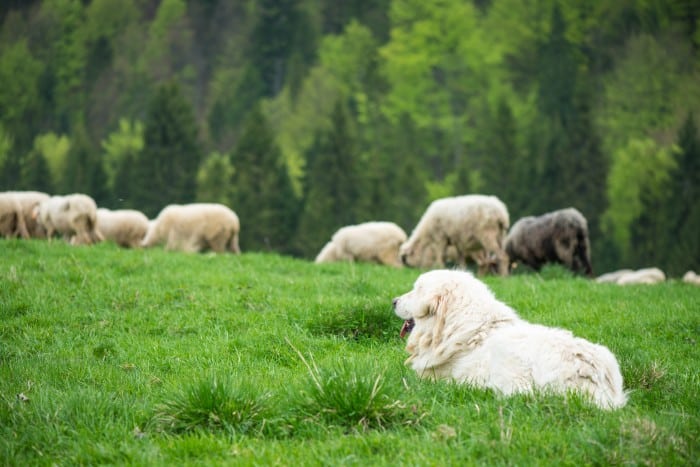Part of the fun of living on a smallholding is that you have enough land to raise animals. Chickens, sheep, pigs, cattle, and other livestock, but what you may not consider until it is too late is the impact of predators.
Livestock are vulnerable to predators. Depending on whereabouts in the world you live, predators could include foxes, coyotes, wolves, domestic dogs, wild cats, bears, and even humans. It is impossible to protect your livestock 100% of the time, but by taking some of the measures below, you can do a good job of minimizing the opportunity for an opportunist predator or thief to attack.
Know Your Predator
You need to know your enemy. In remote rural areas, predators such as foxes, coyotes, and even wolves or bears are common, but in urban areas, you are more likely to see domestic dogs or feral cats attacking your stock. Many dogs are not natural predators, but they will thrill kill if their instincts kick in.
In the wild, a predator is more likely to attack livestock when it’s hungry or has babies to feed. If conditions are difficult, predator attacks are more common, as other sources of food will be scarce. It is essential that you do a risk assessment. Think carefully about what might attack your livestock. Different predators require a different approach, although some strategies are universal.
Secure Fencing
Securing fencing is important. A mesh fence won’t keep all predators out, but it will make it more difficult for them to access your land. Electric fencing is your best option. Fencing needs to be at least 1.1 meters high and low enough to stop smaller animals from digging under the wire. Repeated shocks from electric fencing will deter predators, as they will associate the fence with a painful electric shock. It’s also useful for keeping stock in.
Protection Animals
Protection animals have been used for centuries to watch over livestock. Guard dogs are very common, but other animals such as donkeys and llamas also make good protection animals. A donkey or a llama will keep a small herd of sheep or chickens safe from single predators or small packs. They are very protective once they have bonded with the herd and will attack a predator once it ventures too close.
Livestock guardian dogs make excellent protection animals. They work best in pairs, as they will communicate with each other when dealing with a pack of intruders. If you select the right breed of livestock guardian dogs, they are loyal and will fight to the death to protect the herd.
Light and Sound
Predators are naturally wary, so anything you can do to frighten them will help to keep them away from livestock. Colored flags flapping in the wind, flashing lights at night, and strange electronic sounds are all effective at deterring shy creatures such as wolves.
Don’t forget about human predators. Keep gates locked and consider installing an alarm system that alerts you if someone enters a field when you are not around.



